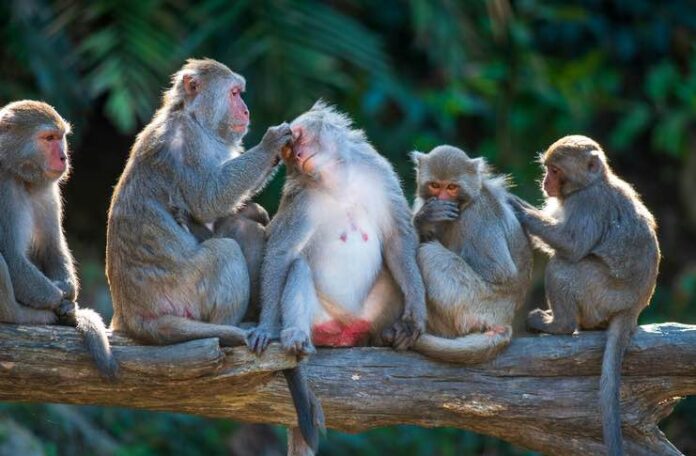Conflict and disputes are part and parcel within the animal kingdom’s grand and multifarious world. Territorial battles and fights for survival often leave animals at a standstill with one another. It would really be something to see them kind of have some system of laws where parties can find justice for the wrongs done unto them. As part of our animal blog, this whimsical yet instructive journey will take us through the personal injury lawsuit appeals process in a way that it might be agreed upon by the animal kingdom. We are going to comprehend all of the twists and turns involved in the appeals process a little better from this particular perspective.
The Injured Squirrel Case
Our story takes place deep in the forest, where a young squirrel, Nutty, was injured when he fell, because Rocky—a playful raccoon—was acting foolishly. Nutty broke his leg and could not get food for the long, cold winter. He had to sue for his injuries.
But in the world of animals, this court is the Forest Court. With Wise Owl sitting as the arbiter, nutty goes to the front to air his assertions. Nutty presents together with him apparent evidence of Rocky’s child’s play and declares that other animals inhabiting the forest will come forth as witnesses to testify in the case. But Rocky justifies it as an accident and asserts that it was not his intention to commit any animosities.
After hearing the arguments from both sides, the Wise Owl gives the judgment in Nutty’s favor to compensate for the medical expenses and the food share that he lost. However, Rocky feels that this is unfair on his side and filed an appeal. So from that point fever, the appeal process started with its labyrinth process.
Watch this video to get a glimpse into understanding justice in the animal kingdom:
The Appeal: Preparing for the Higher Court
Like all cases in the human world, the Court of Appeal consists of three honorable judges: The Lion, The Elephant, and The Eagle. Rocky must prepare a brief that convinces all of these judges that the judgment handed down by Wise Owl is flawed. He must fill out the following styled components:
1. Notice of Appeal
Rocky would file a notice of appeal to the Court of Appeals. This is a filing within a certain amount of time that puts notice to invalidate the decision that was rendered in the lower court. The notice is typically filed within 30 days of the original ruling. Rocky’s grounds of appeal should include the types of errors that exist on how the lower court applied the law or whether they conducted the trial sessions.
2. Preparing the Record on Appeal
This record shall be an extensive compilation of all documents, evidence, and transcript documents that make up a trial. Rocky must make sure this record is complete and contains every single thing that took place in the trial. This is on account of the way that the appellate judges will focus intensely on this record when reviewing the case.
3. Submitting Briefs
Rocky and Nutty drafted written briefs for the Court of Appeals—long, detailed legal arguments outlining each side’s stance. Rocky’s would argue why the original verdict was wrong, that there were legal errors which, therefore, represented misreadings. Nutty’s brief, drafted along with team members like Beaver and Fox, very rose to the other side: why the verdict should stand.
The Appellate Hearing: A Clash of Wits
Once the briefs are filed, the Court of Appeals sets a case for hearing. The hearing presents the parties with an opportunity to argue their respective cases in person. Such hearings can be colorful affairs within the animal kingdom—well-attended by various creatures fascinated by this process.
1. Oral Arguments
The wise and articulate Parrot is now the experienced Kent personal injury lawyer representing the case of Rocky in the oral arguments before the judges. Pointing out, what Wise Owl did was a mistake in the law, since he had not considered some mitigating circumstances in the behavior of Rocky. Furthermore, the Parrot feels that the compensation awarded to Nutty was excessive.
The sharp, tenacious Badger counters these arguments with an emphasis on the extent to which Nutty was really injured and the evidence that clearly indicates Rocky’s negligence. Badger argues that it was a fair, just decision on the part of Wise Owl, and one that should be upheld.
2. Judges’ Questioning
Here the learned judges apportion equally their wise and incisive minds in questioning the case on either side. There, heavy Judge Lion fully roars his question for receipt of legal precedents from Parrot. Slow Judge Elephant turns his sharp attention in probing to the evidence on record that was produced in the course of trial. Yet, sharp-eyed strategist among the judges, Eagle, expresses his wonder if the awarded compensation is to be proportionate enough.
The Decision: Awaiting the Verdict
Following the argument, the appellate judges go back to deliberate. The process may take weeks because the judges review the record on appeal, the briefs, and oral arguments. They try to establish if the decision of the lower court was legal or if they needed to reverse it or change it.
- Affirm, Reverse, or Remand The Court of Appeals may take several courses of actions to have its decision at hand these are:
Affirm: If the judges find no mistake in Wise Owl’s decision, he will affirm the original verdict, which means that Nutty’s compensation remains intact.
Reverse: If the judges determine that significant legal errors occurred, they may reverse the decision, which could result in a new trial or a different outcome altogether.
Remanding: Since other times, the judges remand the case back to the Forest Court for further process with instructions on how specifically the errors already identified need to be corrected.
- To write an opinion.
More than that, the appellate judges must pen an opinion—a generally lengthy explanation of their decision. Often the opinion will serve as legal precedent in future cases, helping to define what and how the law should be applied in similar cases in the tea. Usually, the task of drafting the opinion falls first to Judge Lion with irregular help from Judge Elephant and Judge Eagle.
The Final Verdict: Justice in the Animal Kingdom
Finally, from the review process, the Court of Appeals rules with due consideration. In our tale, let’s suppose the judges now validate the legal decision of Wise Owl, saying they found no major mistakes of law. Disappointed but very fair in this process at the appellate level, Rocky rolls with it.
Nutty is relieved, thankful, as he gets compensation and time to rest from the injuries. The community of the forest witnesses the whole process and feels it even deeper: the rule of law at work, the office’s attention, and the value of exacting justice.
Lessons from the Animal Kingdom
Navigating the appeals process for personal injury within the animal kingdom, entirely made up and bordering on the fantastical, does add some insights to our actual legal system.
That process is so incredibly vital, and it’s a core process to be able to right any possibility of judgmental wrong and assure that the law’s findings are indeed fair and just.
This allegorical tale gives us the very important idea of rigorous preparation, juicy legal arguments, and the legal acumen that experienced judges possess.
Justice is a lofty ideal in both the animal world and among humans—it requires commitment, integrity, and dedication to fairness. In the story of Nutty and Rocky,justice unfolds in all its complex, slow ways—but it remains to preserve harmony and the order of any society, be it human or animal.



